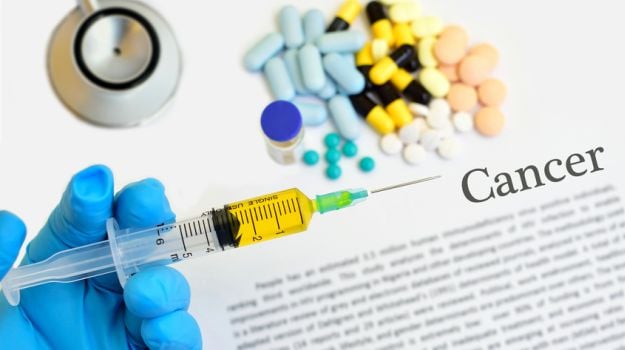A Tiny Power Plant You Could Swallow to Fight Cancer
 Human beings benefit from more than four billion years of evolution in bio-energy.
Human beings benefit from more than four billion years of evolution in bio-energy.
But come on. We can do better than that.
So a group of researchers at Carnegie Mellon University are at work on a tiny battery made of our own chemicals they could put in a pill you’d swallow – a micro power plant that could deliver controlled-release therapies to fight disease with previously impossible precision and safety.
Conventional time-release capsules deliver medicines in the form of small molecules. The more complex the agent, the more power and fine tuning the pill – really an edible microelectronic device – needs. Today’s smart pills are still kind of dumb, relying on miniature batteries with inedible or toxic parts to monitor vital signs or help the digestive tract take a selfie. They could get stuck somewhere and become difficult to dislodge, said Christopher Bettinger, associate professor of materials science and biomedical engineering at Carnegie Mellon.
Besides the trade-off between energy and toxicity, scientists face a problem familiar to designers of smartphones, electric cars, and hearing aids: battery bulk.
So Bettinger and his group asked how they could shrink a battery and, at the same time, make it from chemicals the body is used to.
One answer may be melanin, the ultraviolet-light-blocking pigment found in hair, skin, and eyes. If these bio-batteries can power drug delivery, they wouldn’t be any more toxic than a fancy meal prepared with squid ink, which is harmlessly heavy on the melanin, Bettinger said. He’s even ingested a prototype.
“If you’ve ever had squid ink pasta, then you’ve already swallowed lots of melanin,” he said.
In theory, it works like the ubiquitous lithium-ion batteries of computers or lead-acid car batteries. There are negatively and positively charged ends. The electrons want nothing more than to get away from the negative end. When an external circuit (essentially, a wire) connects the poles, the electrons run headlong for the positive pole, lighting up bulbs, processors, or radios along the way. Ions simultaneously freed from the negative end flow up through a no man’s land (the electrolyte) and meet up again with the electrons at the other end.
Lithium compounds are great for powering batteries in devices or cars. They’re also great for treating bipolar disorder. But for other purposes there’s too much risk in a digestible battery made from a substance known to affect brain chemistry and the nervous system.
A couple of things recommend melanin as a bio-battery ingredient, Bettinger said. Melanin pigments help protect the body against the sun’s ultraviolet radiation. They scoop up charged particles, called free radicals, which can damage cells as they zip around. “It turns out that same process is really important for batteries,” Bettinger said. “That was kind of cool.”
In the brain, a melanin compound helps bind up otherwise damaging metals, like zinc, aluminum, and iron. It soaks them up like a sponge–another helpful quality in a battery material.
Bettinger, who will speak at a major chemistry conference in Philadelphia this week, said he hopes to publish his latest results before the end of the year. His research is supported by the National Institutes of Health and the Defense Advanced Research Projects Agency.
There’s still a long road ahead. As he continues his work, Bettinger will start to reach out to medical researchers who need a high-tech delivery mechanism.
“Next is working with partners to find the killer app,” he said. “We have the non-toxic batteries, that’s great. What can you do with them? We think there’s an opportunity to power smart pills.”
Specifically, in the gut.
Gut bacteria have drawn attention in recent years as researchers have discovered correlations between them and chronic diseases, including cancer, diabetes, and obesity. One day, melanin batteries may help bio-electric therapies repopulate the lower digestive system with healthier microbes. “There’s a huge therapeutic target that exists in the GI tract that’s accessible with these kind of devices,” Bettinger said.
A pragmatist, Bettinger declined to comment on any sci-fi applications for his bio-battery. Writers are better at that, he said.
Maybe. But we’ll need the scientists, too, when the bio-battery-powered swarm robots start attacking us from within.
